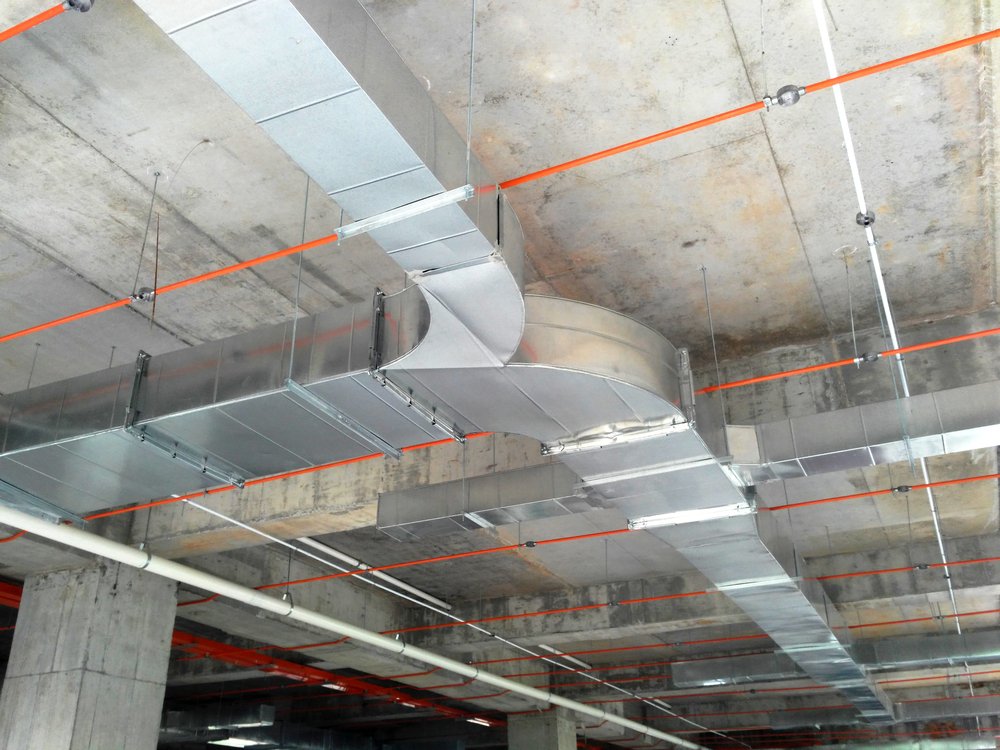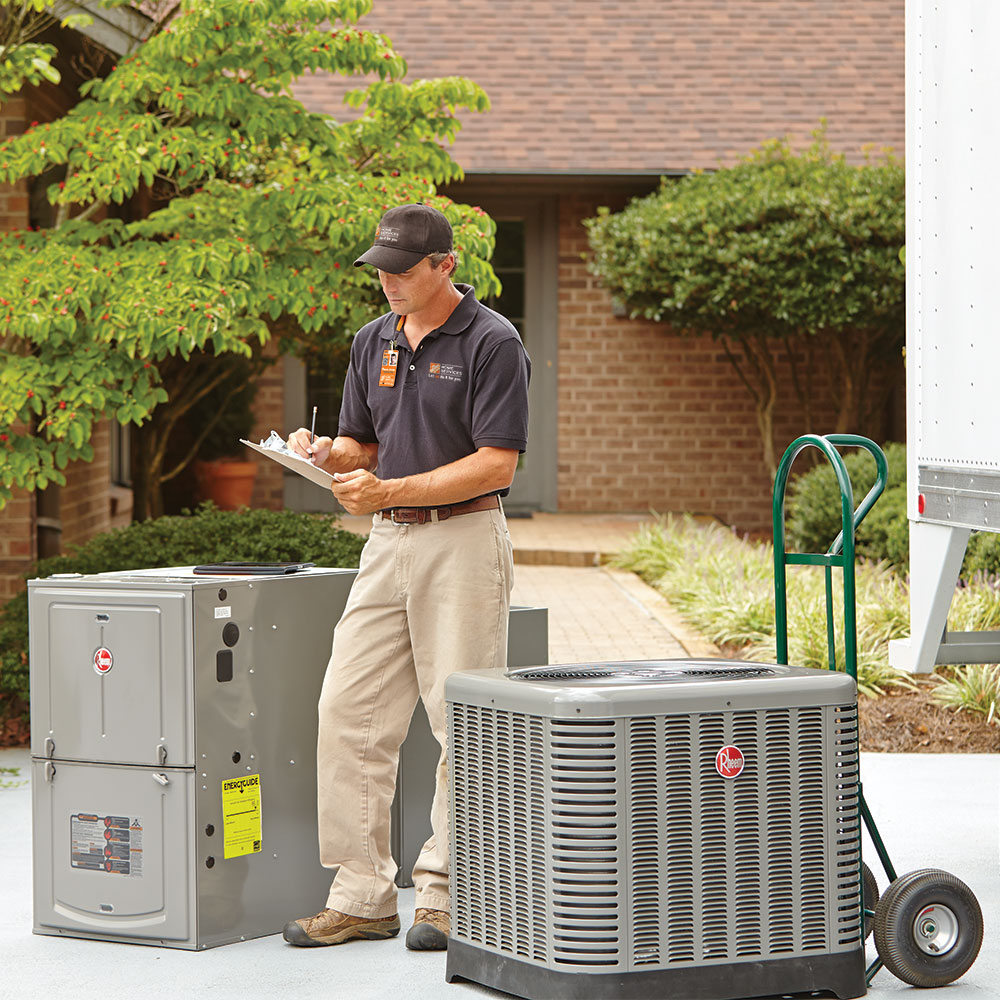HVAC System Replacement
by Admin
Posted on 15-01-2025 02:36 PM

Recognizing the Signs of a Failing HVAC System
One of the most important steps in deciding whether to replace your HVAC system is recognizing the signs that it's time to do so. Here are some key indicators:
Frequent Repairs
If you find yourself calling the HVAC technician more often than not, it might be time to replace your system. Frequent repairs can be costly and often indicate that the system is reaching the end of its life.
Increased Energy Bills
Aging HVAC systems become less efficient over time, leading to higher energy bills. If you notice a significant increase in your utility costs, it could be a sign that your system is not functioning as efficiently as it should.
Uneven Temperature Distribution
If some rooms in your home are consistently warmer or cooler than others, it could be a sign of a failing HVAC system. Proper airflow and temperature distribution are essential for comfort and energy efficiency.
Strange Noises
Unusual noises such as banging, squealing, or grinding can indicate mechanical issues that may require significant repairs or replacement.
Age of the System
Most HVAC systems have a lifespan of 10 to 15 years. If your system is approaching or has surpassed this age, it may be time to consider a replacement.
Benefits of Replacing Your HVAC System
Replacing an old HVAC system with a new, more efficient model can bring several benefits:
Improved Energy Efficiency
Modern HVAC systems are designed to be more energy-efficient, which can significantly reduce your utility bills. Look for systems with high SEER (Seasonal Energy Efficiency Ratio) and AFUE (Annual Fuel Utilization Efficiency) ratings.
Enhanced Comfort
New systems are better at maintaining consistent temperatures and humidity levels, ensuring a more comfortable living environment.
Better Indoor Air Quality
Advanced filtration systems and UV lights can improve indoor air quality by reducing allergens, bacteria, and other pollutants.
Reduced Maintenance
Modern HVAC systems are designed to be more reliable and require less maintenance, saving you time and money in the long run.
Increased Home Value
A new, efficient HVAC system can increase the value of your home, making it a wise investment if you plan to sell in the future.
Choosing the Right HVAC System
Selecting the right HVAC system for your home is a crucial step in the replacement process. Here are some factors to consider:
Size and Capacity
The size and capacity of your HVAC system should match the square footage of your home. A system that is too large or too small will not operate efficiently and can lead to higher energy costs.
Efficiency Ratings
Look for systems with high SEER and AFUE ratings. The higher the ratings, the more efficient the system will be.
Type of System
Consider the type of system that best suits your needs. Options include central air conditioning, heat pumps, ductless mini-splits, and geothermal systems.
Budget
While it's tempting to choose the least expensive option, it's important to consider the long-term benefits of a higher-quality system. A more expensive system may save you money in the long run through lower energy costs and reduced maintenance.
Brand and Warranty
Choose a reputable brand with a good track record and a strong warranty. This can provide peace of mind and protect your investment.
Preparing for Installation
Proper preparation is key to a smooth and successful HVAC system installation. Here are some steps to take:
Schedule a Professional Assessment
Have a professional HVAC technician assess your home to determine the right system size and type. This will ensure that your new system is properly matched to your home's needs.
Clear the Installation Area
Remove any furniture or obstacles from the area where the new system will be installed. This will make the installation process easier and more efficient.
Check for Permits
Some jurisdictions require permits for HVAC system installations. Check with your local building department to ensure that you have the necessary permits.
Inspect Ductwork
If you are replacing a central HVAC system, have your ductwork inspected for leaks and damage. Sealing and insulating ducts can improve the efficiency of your new system.
Plan for Disruption
HVAC installation can be disruptive, so plan for some inconvenience. Notify your family or roommates about the installation schedule and make arrangements for alternative heating or cooling if necessary.
The Installation Process
The installation process for an HVAC system typically involves several steps:
Removal of the Old System
The first step is to remove the old HVAC system. This may involve disconnecting electrical and gas connections, as well as removing the indoor and outdoor units.
Installation of the New System
The new system is then installed, including the indoor and outdoor units, ductwork, and control systems. The installation team will ensure that all connections are secure and that the system is properly balanced.
Testing and Commissioning
Once the new system is installed, it will be tested and commissioned to ensure that it is functioning correctly. This may involve adjusting settings and performing diagnostic tests.
Final Inspection
A final inspection will be conducted to ensure that the installation meets all safety and performance standards. This is also a good time to ask the installation team any questions you may have about operating and maintaining your new system.
Cleanup
The installation team will clean up the installation area, removing any debris and ensuring that your home is left in good condition.
Maintenance and Care
Proper maintenance is essential for ensuring that your new HVAC system operates efficiently and lasts as long as possible. Here are some tips for maintaining your system:
Regular Filter Changes
Change the air filter regularly, typically every 1-3 months, depending on the type of filter and the conditions in your home.
Annual Maintenance
Schedule annual maintenance with a professional HVAC technician to ensure that your system is running smoothly and to catch any potential issues before they become major problems.
Check for Leaks
Regularly check your ductwork for leaks and seal any that you find. This can improve the efficiency of your system and reduce energy costs.
Keep Vents and Registers Clear
Ensure that vents and registers are not blocked by furniture or other objects. This will allow for proper airflow and more efficient operation.
Use a Programmable Thermostat
A programmable thermostat can help you manage your home's temperature more efficiently, reducing energy costs and improving comfort.
Environmental and Safety Considerations
When replacing your HVAC system, it's important to consider the environmental impact and safety of the new system:
Refrigerant Type
Choose a system that uses environmentally friendly refrigerants, such as R-410A, which has a lower impact on the ozone layer compared to older refrigerants like R-22.
Energy Star Certification
Look for systems that are Energy Star certified. These systems meet strict energy efficiency guidelines set by the U.S. Environmental Protection Agency (EPA).
Proper Disposal
Ensure that your old HVAC system is disposed of properly. Many HVAC companies offer recycling services for old units, which can help reduce waste and environmental impact. You can find a reliable company for your HVAC system replacement through resources like the ACCA HVAC Contractor Locator.
Carbon Monoxide Detectors
If your new system uses a combustion process, such as a gas furnace, ensure that you have carbon monoxide detectors installed in your home to protect against potential hazards.
FAQs
How long does an HVAC system typically last?
Most HVAC systems have a lifespan of 10 to 15 years. However, regular maintenance and proper care can extend the life of your system.
Can I install a new HVAC system myself?
While it is technically possible to install a new HVAC system yourself, it is highly recommended to hire a professional. HVAC systems involve complex electrical and mechanical components, and improper installation can lead to safety hazards and reduced efficiency.
How often should I change the air filter?
You should change the air filter every 1-3 months, depending on the type of filter and the conditions in your home. High-traffic homes or those with pets may need to change filters more frequently.
What is the difference between a heat pump and a central air conditioner?
A central air conditioner only provides cooling, while a heat pump can both heat and cool your home. Heat pumps are more energy-efficient and can be a good option for moderate climates.
What should I do if my new HVAC system is not working properly?
If your new HVAC system is not working as expected, contact the installation company or a professional HVAC technician for assistance. They can diagnose and resolve any issues to ensure that your system is functioning correctly.
How can I improve the indoor air quality in my home?
To improve indoor air quality, consider installing advanced filtration systems, UV lights, and air purifiers. Regularly cleaning and maintaining your HVAC system can also help reduce allergens and other pollutants.
Just Rite Air
28015 Smyth Dr Suite 116, Santa Clarita, CA 91355
(661) 779-4499
